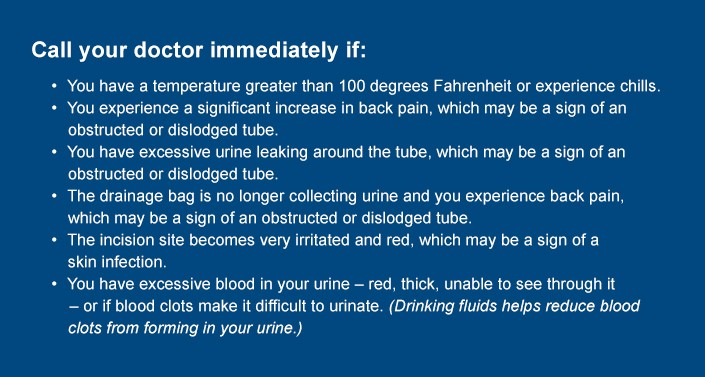Occasional Kidney Discomfort
Kidney infection symptoms
- Oct 10, 2019 Pelvic pain is a common condition in women with a wide range of causes. It can be chronic or acute. Pelvic pain often responds to at-home treatments and OTC medications.
- Discomfort and Pain – A feeling of discomfort and pain is also a general side effect of having a kidney stent placement especially in the initial days of the procedure. Bleeding – The trace of blood appearing in urine is a normal side effect which mostly disappears or decreases after the first few days of the placement.
Occasional Kidney Discomfort
Kidney infections are relatively rare, but can be serious. Known medically as pyelonephritis, kidney infections can occur when you have a bladder or urinary tract infection (UTI) and the bacteria travel up the ureters (the tubes that connect the kidney to the bladder).
The bloated feeling could indicate a kidney infection as well. I still won't rule out the possibility of a kidney stone though. The occasional pains you have at the computer or on the bed could be a result of it moving. Your doctor will probably take a urine sample and test it, yes. If your kidneys are affected, signs and symptoms may include: high fever side and upper back pain chills and shaking frequent urination a persistent urge to urinate blood or pus in urine nausea and vomiting. Kidney pain: You may have a kidney stone and may need imaging like ultrasound or CT for diagnosis. Small stones are usually treated with hydration and pain medicat.
In fact, kidney infections are actually considered a type of UTI, so the symptoms can be similar. There are about 100,000 hospital visits for UTIs in the U.S. each year, and most of them are due to kidney infections.
While anyone can get a kidney infection, they are more common in women than men because women are more prone to UTIs due to their anatomy. Women ages 15 to 29 are particularly at risk, and you can also be at greater risk of a kidney infection if you are pregnant, have a weakened immune system, or diabetes.

If you recognize the following signs, that means you could have a kidney infection. Infections can be treated with antibiotics, however you may need to be treated in the hospital depending on the severity of infection. (Here are 42 signs your kidneys are in trouble.)
Dull Kidney Discomfort
© Ben-Schonewille/Getty ImagesA kidney infection (pyelonephritis) is a painful and unpleasant illness caused by bacteria travelling from your bladder into one or both of your kidneys.
It's more serious than cystitis, a common infection of the bladder that makes urinating painful.
If treated promptly, a kidney infection doesn't cause serious harm, but will make you feel very unwell. If a kidney infection isn't treated, it can get worse and cause permanent kidney damage.
Symptoms of a kidney infection often come on within a few hours. You can feel feverish, shivery, sick and have a pain in your back or side.
Read more about the symptoms of a kidney infection
When to see your GP
See your GP if you have a fever and persistent tummy, lower back or genital pain, or if you notice a change to your usual pattern of urination.
Most kidney infections need prompt treatment with antibiotics to stop the infection from damaging the kidneys or spreading to the bloodstream. You may also need painkillers.
If you're especially vulnerable to the effects of an infection – for example, if you have a pre-existing health condition or are pregnant, you may be admitted to hospital and treated with antibiotics through an intravenous drip.
After taking antibiotics, you should feel completely better after about two weeks.
In rare cases, a kidney infection can cause further problems. These include blood poisoning (sepsis) and a build-up of pus in the kidney called an abscess.
Read more about treating a kidney infection and the complications of a kidney infection
Back Pain With Kidney Infection
What causes a kidney infection?

A kidney infection usually happens when bacteria – often a type called E. coli – gets into the urethra (the tube which carries urine out of the body) and travels up through the bladder and into the kidneys.
Read more about the causes of a kidney infection

Who's at risk?
Kidney infections are relatively rare. It's estimated that one in every 830 people develops a kidney infection each year in the UK.
They can happen at any age, but are much more common in women. In fact, women are six times more likely to get a kidney infection than men. This is because a woman's urethra is shorter, making it easier for bacteria to reach the kidneys.
Younger women are most at risk because they tend to be more sexually active, and having frequent sex increases the chances of getting a kidney infection.
Younger children are also vulnerable to developing kidney infections because they may be born with an abnormality of the urinary tract or have a condition called vesico-ureteric reflux, where there is a backflow of urine from the bladder up to the kidneys.
Kidney Infection Symptoms Back Pain
Can kidney infections be prevented?
Intermittent Kidney Discomfort
You can reduce your chances of developing a kidney infection by keeping your bladder and urethra free from bacteria. This can include drinking plenty of fluids, keeping your genitals clean and treating any constipation.
Occasional Kidney Discomfort Symptoms
Read more about preventing a kidney infection